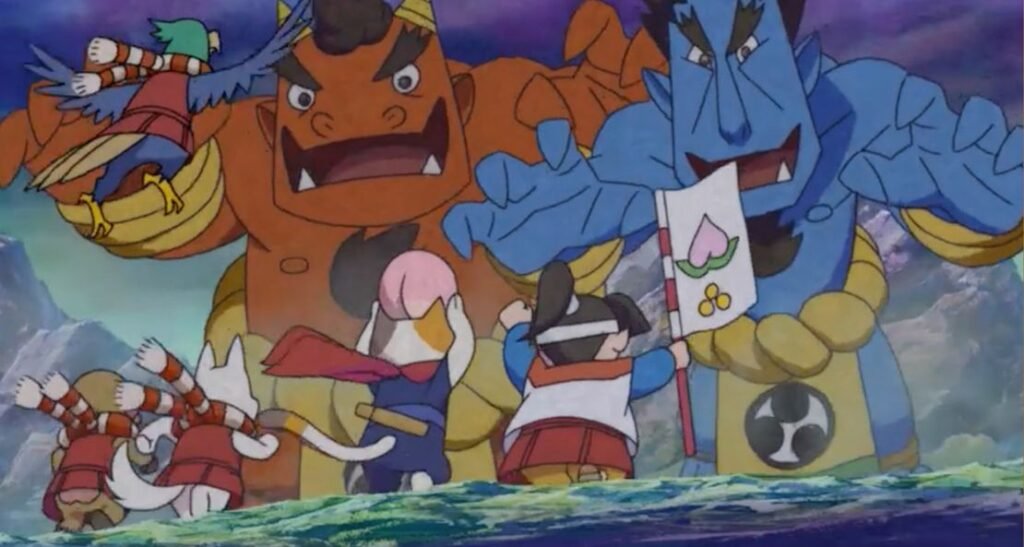Google’s Doodle Champion Island Games isn’t just about sporting challenges.
For a detailed overview of the gameplay and mechanics, check out our previous guide, Doodle Champion Island Games: The Ultimate Guide to Google’s Most Epic Interactive Doodle.
It’s a cultural journey where Japanese folklore meets retro gaming, offering players a vibrant mix of myths and mini-games.
Let’s dive into how this interactive masterpiece brought ancient stories to life for a global audience.
Lucky the Cat: A Protagonist Rooted in Japanese Beliefs
At the heart of the game is Lucky, a calico cat chosen to restore harmony to Champion Island.

The choice of a cat as the protagonist is no coincidence; in Japanese culture, the calico cat (or maneki-neko) symbolises good fortune and protection.
Lucky’s journey is not just about collecting Sacred Scrolls but also about embodying the spirit of resilience and courage that echoes through Japanese mythology.
The Champions: Legends Reimagined

Each region of Champion Island is guarded by a legendary champion whose traits and challenges draw from Japanese myths.
Here’s how these figures blend seamlessly into gameplay:
- Tengu (Table Tennis): The Tengu, a bird-like goblin from Japanese folklore, is known for its martial prowess. Its presence as a table tennis master in a serene bamboo forest is a clever nod to its swift and skilled nature.
- Princess Oto-hime (Artistic Swimming): Underwater, players face Princess Oto-hime, inspired by the legend of Urashima Tarō. The mythical princess’s graceful movements translate beautifully into a rhythmic swimming challenge.
- Yoichi (Archery): Yoichi, the famed archer from Japanese history, makes his mark near the lotus pond. His precision and skill are reflected in the archery mini-game, where accuracy is paramount.
- Oni (Rugby): The Oni, fearsome trolls in Japanese lore, dominate the rugby field. Their brute strength is balanced by the clever assistance of Momotarō and his loyal animal companions.
- Kijimuna (Marathon): The tree-dwelling Kijimuna spirits challenge players to a marathon along a scenic beach. Known for their mischievous nature, they make the race unpredictable and lively.
- Fukuro (Climbing): Perched atop a mountainous peak, Fukuro the Owl embodies wisdom and observation. Scaling cliffs under Fukuro’s watchful eyes tests a player’s patience and skill.
- Tanuki (Skateboarding): The tanuki, or raccoon dog, is a symbol of transformation and playfulness in Japanese folklore. These qualities shine in the skateboarding mini-game, set in the bustling streets of Tanooki City.
Side Quests: Hidden Stories and Cultural Nuggets
Beyond the main challenges, Doodle Champion Island Games is peppered with side quests that further immerse players in folklore.
Helping NPCs with their unique problems often reveals deeper cultural themes. For example:
- Don’t Trust the Bird: A cryptic side quest involving a black cat named Momo, tying into another Google Doodle, Magic Cat Academy. This quest offers an Easter egg for sharp-eyed players.
- Trophy Collecting: With 24 trophies scattered across the island, each one reflects an aspect of Japanese storytelling or community values, encouraging exploration and engagement.
Expanded Examples:
- Helping the Old Fisherman: Near the archery region, players meet an old fisherman who has lost his fishing rod. Finding and returning the rod unlocks an advanced archery challenge.
- Restoring the Cherry Blossom Tree: In the central plaza, players can gather ingredients to restore the cherry blossom tree, which rewards a special trophy.
A Visual and Musical Homage

The game’s vibrant pixel art and hand-drawn anime cutscenes, developed by Studio 4°C, are steeped in Japanese aesthetics.
From cherry blossoms in full bloom to the serene lotus pond, every detail feels like a postcard from Japan’s cultural heritage.
Meanwhile, the soundtrack by Qumu adds an energetic backdrop that balances nostalgia with modernity.
Why It Matters
By blending folklore with interactive gameplay, Doodle Champion Island Games achieved something rare: it educated while it entertained.
For a global audience largely unfamiliar with Japanese myths, it was a gentle introduction to the country’s rich cultural tapestry.
For those familiar with the stories, it was a celebration of heritage in an innovative format.
Legacy and Replay Value
Even after its removal from Google’s homepage, Doodle Champion Island Games remains a cultural and gaming touchstone, accessible through the Google Doodle archive.
Its replayability, bolstered by hidden challenges and leaderboards, ensures it continues to captivate audiences.
Added Replay Tip: Players can reset progress to join a different team, experiencing fresh challenges and contributing to new leaderboard stats.
Final Thoughts
Doodle Champion Island Games wasn’t just a game; it was a love letter to Japanese folklore, wrapped in the charm of retro gaming.
Whether you’re smashing through mini-games or soaking up the mythology behind them, Lucky the Cat’s journey reminds us that stories—no matter how ancient—can always find a new way to be told.
You might also like:
- Joining The World of Blooket: The Ultimate Guide For Students
- Riddles for Teens: A Brain-Teasing Adventure
- Unlock Your Focus Zone: Top Brainwave Entrainment Playlists for Deep Work
- Chained Together: Turning Holiday Bonding into Fiery Fun
- Solitaired: The Ultimate Guide to Choosing Your Next Favourite Solitaire Experience


